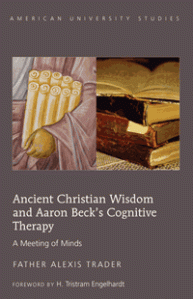Insomnia: Introducing a New Series that May Put You to Sleep
“I just can’t sleep.” How many times have we heard this complaint from family or friends? Perhaps, we have even uttered these words ourselves. Insomnia is a prevalent problem for at least one-third of the population, according to research. And it has been around for a long time. Even an ancient ecclesiastical writer like Clement of Alexandria once remarked, “God is incapable of weariness, and suffering, and want. But we who bear flesh need rest” (The Stromata, Book 6, Chapter 16). Those with insomnia have trouble finding that rest they need.
Insomnia may be defined as a “chronic inability to obtain adequate sleep” (Bootzin & Nicassio, 1978). Its chronic nature means that it is not a one-time occurrence, but a repeated pattern of being unable to enjoy proper sleep and rest. The symptoms are as prevalent and varied as the number and demographics affected by insomnia. In her dissertation entitled, “A Comparison of Three Cognitive Behavioral Treatments for Insomnia: Paradoxical Intention, Coping Imagery, and Sleep Information,” Lynn Petras Gould mentions three symptoms characteristic of insomnia which include sleep onset insomnia (referring to difficulty falling asleep), sleep maintenance insomnia (meaning difficulty maintaining sleep), and terminal insomnia (characterized by early morning awakening). Researchers have made these operational definitions about how much time needs to have passed for sleep difficulties to be characterized as insomnia. In order to set guidelines in studying and treating these symptoms, they have decided that sleep onset insomnia and sleep maintenance insomnia are present after a 30-minute or more lag in falling asleep or in awakening after only 30 minutes or so, while terminal insomnia is present when one wakes up after less than 6 ½ hours of sleep. Of these insomnia varieties, the most prevalent is sleep onset insomnia (Roth, Kramer, & Lutz, 1976), which is also the easiest to measure and has become the most popular subject of research study.
Along with these chief symptoms of chronic insomnia there are widely-held public perceptions that make insomnia difficult to properly treat. First, many believe insomnia is not a medical problem and will go away on its own. Second, others believe the only answer is sleeping pills. According to Alfonso Marino’s dissertation, “Treating Chronic Insomnia: A Cognitive-Behavioral Group Therapy Approach,” “It has been reported that up to 80% of individuals with insomnia treated with medication in the past re-emerge years later with the same problem (Morin, 1993). This suggests that on its own, medication is not an effective mode of treatment for many individuals with chronic insomnia.”
In addition to the prevalence of insomnia in the general population, the effects of insomnia are multiple and varied. Insomnia affects health, mood, performance, and relationships. It is the most frequent medical complaint after pain, yet remains untreated in 80% of the sufferers. According to Marino’s dissertation, “In clinical practice, it has been reported that insomnia sufferers seek treatment after enduring the problem for an average of 12 years” (Morin, Sonte, McDonald, & Jones, 1992).
Insomnia, like many other disorders, affects every aspect of life including cognitive functioning, physical issues such as high blood pressure, obesity, heart disease, and diabetes, emotional difficulties such as depression and anxiety as well as social relationships and the spiritual life.
With this introduction in mind, I would like to set out on a new series that, if successful, might put some of my readers to sleep, which in this case will not be such a bad thing. Like our past series on Type A personality pattern, chronic pain, compulsive buying, and anger management , here too, we will try to follow the patristic approach in dealing with problems or passions. In other words, even as they would first look at a passion carefully, describe it in detail, and then with the help of God, consider what to do in order to attain to the corresponding virtue, so we will try to do something similar with this issue using both the findings of present day research on the subject and the wisdom of the fathers that so often can beautifully balance and deepen modern practices. Insomnia is a complex problem with many causes, many features, many myths, and many non-pharmaceutical ways to deal with it. I think it is worth looking at them, so that we might sleep in peace and arise refreshed to do the will of God.




Father…I look forward to this series. I have been dealing with what looks like *terminal insomnia* for about 13 years. There are nights I can’t fall asleep, but predominantly, I seem to fall in the above category. Medication only helps sometimes. Nothing works 100 %. I don’t know what to do in addition to healthy eating, exercise, and prayer with frequent reception of the sacraments.
Thank you sharing this.
~Blessings
I have been an insomniac since I was a teenager. I simply cannot get a good night’s sleep. I see this in my daughters as well, which troubles me. I greatly look forward to reading more about how to deal with this.
Thank you, Theresa and Jewel, for sharing your own personal difficulty with insomnia. I hope this series proves helpful. Many of the things you do, Theresa, are among what is advised by both psychologists and spiritual fathers.
I had insomnia when I was depressed. I ruminated a lot in the early morning time. I waked up always too early. For me it helped when I started journaling. I think we have a great Christian tradition Lectio Divina which could be used for insomnia, too. At least I suppose so, because my method of self-reflexion resembled this method a lot. When you put your ideas on the paper, they don’t haunt you!
Thank you, katisar, for your comments. Yes, journaling and lectio divina are great helps in many areas.
Bless, Father..
I’m intrigued by this series, as I fully understand the benefits of adequate sleep. I hope you, at least briefly, deal with the notion that sleep is/was a ‘waste of time’ or an indulgence by some Orthodox spiritual guides. I remember reading that St. John Maximovitch would sleep in a chair rather than a bed, and for what we would consider a ridiculously short period of time.
The Lord God bless you, B.E.,
Thank you for an excellent suggestion. In general, when the fathers speak about vigil, they will speak disparagingly about sleep. There is, however, a prayer especially for those with insomnia, so they recognise that it is a real problem for which one can rightly seek help from God. Some monks also sleep sitting in a chair on Athos. Monks preparing for ordination will not sleep lying down the night before. And on Athos, sleeping very little is considered to be a virtue.
I liked seeing the information that people who use sleeping pills find that the insomnia comes back years later. The pills in my experience don’t work and can also result in complicated side effects as well as increase accident rates (senior car drivers had 45% increased accident rate on sleeping pills in one study – http://goo.gl/GXlB0j).
Theresa – it is impossible to tell you what to do to find the solution but here are a couple of suggestions: get your thyroid and cortisol levels tested and also a blood test for diabetes (not urine as it is not 100% accurate). It you drink a lot of liquid during the day then try to reduce that if you find you are waking up during the night and need to go to the loo before you can get back to sleep. Do you have any troubles breathing? Nasal problems such as nasal valve collapse can prevent you getting enough air at night especially if you have allergies. Then there is always sleep apnoea which you would need to get a sleep study done to test for. If you have a partner then ask them to see if you stop breathing or have laboured breathing at night. Good luck and push your doctor for a solution – take someone with you if you need the moral support. It is often difficult to explain the problem to a doctor when you are chronically tired.
About 3/2000 people also suffer from circadian rhythm disorder which can be characterized by falling asleep very late a night. If you try to fall asleep before your bodies natural sleep time then this could also develop into insomnia and depression (http://goo.gl/gvdTzf).
You can also try the online CBT course at sleepio.com which has up to 80% success rates for people with primary insomnia (insomnia not caused by depression or other physiological problems).
The best solutions are self education. Doctors often take the attitude that the problem will go away or reach for the quick antidepressant fix and that is rarely the only possible cause.
Thank you Gavin for sharing all that information…much appreciated!
I just got a panel of bloodwork done and everything looks good as far as thyroid and diabetes. I am careful not to drink close to bedtime. I do not have trouble breathing and I am usually asleep at a decent time. I will check out the link on the circadian rhythm though.
And will look at the CBT course…I am intrigued although I am told my insomnia is linked to depression.
I hope to see a naturopath doc this year when finances allow because you are correct…the regular docs are so quick to write the prescription!
God bless~Theresa
Did you manage to get Cortisol levels checked? Cortisol is produced by the adrenal gland and will stop people sleeping as it is designed to keep you awake and alert in response to a threat. It should be lowest just as you go to sleep and highest when you wake. It is done through a blood test. I will mention that I am not medically trained, I am just reading about things in order to sort myself out!
If your insomnia is linked to depression then I am sorry to hear that. Depression is a nasty little monkey. I think your idea of going to a naturopath is a good one. I would keep the anti-depressants and sleeping pills as a last resort. You are probably aware of the reports of fish oil as a treatment for depression and you may want to ask your naturopath about this.
I am trying to come of Elavil (Amitriptylene) which I was on for 10 years and think that the withdrawal effects are significant – insomnia, irritability, low mood and low motivation. It never really did anything for me anyway. That is why I suggest keeping pharmacological interventions for the last resort.
Good luck and I hope you manage to work things out!
I wish you much luck, with prayer, that you are able to come off your med. I have been there, unsuccessfully.
It’s a little late to leave the meds for a last resort. I have been on them for 13 years for depression/anxiety/insomnia. They were able to diagnose the depression from the sleep patterns I was experiencing.
The naturopath will have to wait, until then…I rely on God’s grace and beg for patience in waiting to find some solution.
Blessings~